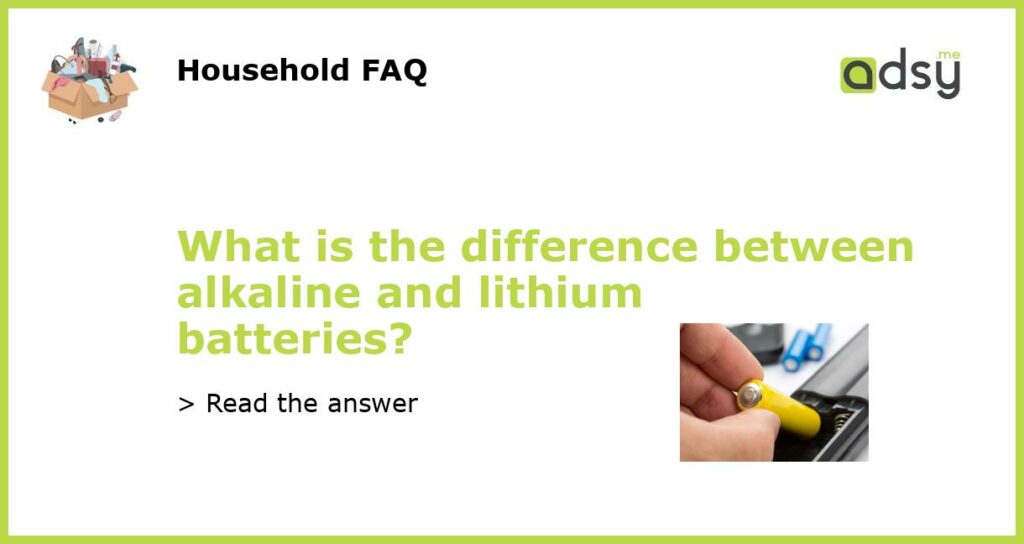Alkaline vs Lithium Batteries: Understanding the Key Differences
If you’ve ever shopped for batteries, you may have noticed that there are many different types to choose from. Two popular options are alkaline and lithium batteries. While they both serve the same purpose – to power various electronic devices – there are significant differences between the two. In this article, we will delve into the key distinctions between alkaline and lithium batteries.
Chemistry Composition
One of the primary differences between alkaline and lithium batteries lies in their chemistry composition. Alkaline batteries are made with alkaline electrolytes, which include potassium hydroxide or sodium hydroxide dissolved in water. They contain zinc as the anode and manganese dioxide as the cathode. On the other hand, lithium batteries use lithium as the anode and a variety of materials, including transition metal oxides, as the cathode.
Voltage and Capacity
Alkaline batteries are known for their higher voltage compared to lithium batteries. The average voltage of an alkaline battery is around 1.5 volts, which remains relatively constant throughout its lifespan. In contrast, lithium batteries typically have a voltage range between 3 to 3.7 volts, which may vary depending on the specific type and manufacturer.
When it comes to capacity, lithium batteries generally have a higher energy density, meaning they can store more energy for their size compared to alkaline batteries. As a result, lithium batteries tend to last longer and provide more power for electronic devices, making them a popular choice for high-drain devices such as digital cameras and remote controls.
Shelf Life and Discharge Rate
If you’re looking for long-lasting batteries that can be stored over extended periods, lithium batteries are the clear winner. They have an impressive shelf life and can retain their charge for up to 10 years. Alkaline batteries, on the other hand, have a shorter shelf life and may start to lose their charge after around 5 years.
The discharge rate is another area where lithium batteries outperform alkaline batteries. Lithium batteries maintain a more consistent voltage throughout their lifespan, providing stable power until they are almost fully discharged. Alkaline batteries, on the other hand, gradually decrease in voltage as they are used, which can affect the performance of devices that require a steady power supply.
Environmental Impact and Recycling
When it comes to the environmental impact, lithium batteries are considered more eco-friendly compared to alkaline batteries. Lithium is a naturally occurring element that can be mined and recycled, while alkaline batteries contain potentially harmful materials such as mercury, cadmium, and lead. However, it is worth noting that both types of batteries should be properly recycled to prevent any potential harm to the environment.
Regarding the recycling process, many municipalities and organizations have established systems to collect and recycle both alkaline and lithium batteries. However, the recycling methods and facilities may vary depending on your location. To ensure proper disposal and recycling, it’s recommended to check the guidelines provided by your local waste management authority.
Price and Availability
Finally, price and availability may also play a role in your choice between alkaline and lithium batteries. Alkaline batteries are widely available and tend to be more affordable compared to lithium batteries. Lithium batteries, on the other hand, are often priced higher due to their superior performance and longer lifespan.
In conclusion, while alkaline and lithium batteries may seem similar at first glance, they have significant differences in terms of chemistry composition, voltage and capacity, shelf life and discharge rate, environmental impact, as well as price and availability. Understanding these distinctions can help you make an informed decision when choosing the right batteries for your devices.






